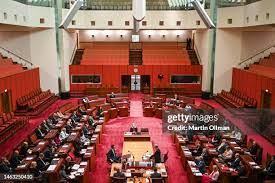The link between politics and the media has always been a key part of Australian democracy, and Canberra is the best place to see this. Canberra is the political center of Australia, but it is also the center of media coverage that tells Australians about the decisions that affect their daily lives. Politicians, journalists, and the public all gather in the city, making it a lively place where accountability and influence are always at odds with each other.
The role of the press in Canberra
The press gallery, a group of journalists who work in Parliament House and report directly on what the government does, is crucial to Canberra's political scene. This group of reporters, correspondents, and commentators is crucial for looking into policies, reporting discussions, and bringing to light issues that might not otherwise be known to the public.
The press gallery has a strong history of making sure that leaders are held accountable, that things are open, and that harsh questions are asked at press conferences and parliamentary sessions. In a democracy, this function is essential since citizens need access to information to make smart choices.
Political journalism and public perception
In Canberra, political media does more than just write down facts. It affects how Australians perceive politicians, programs, and even problems. The way the media talks about an issue may frequently make it a national topic or make it go away. For example, issues about climate change, immigration policy, or economic reforms often receive more attention based on how journalists write about them and how deeply they look into them.
Journalists are the link between the people who make decisions and the people who live by them. They can change people's minds and even persuade politicians to act by making complicated subjects easier to understand and pointing out possible outcomes.
The challenges of covering federal politics
It's difficult to cover politics in Canberra. Every day, reporters have to deal with problems like not being able to get enough information and political spin that tries to influence the story. Politicians and their aides often try to shape stories to their benefit, while journalists have to find a balance between speed and accuracy.
Additionally, journalists must constantly update 24-hour news cycles and social media. This might make journalists feel more pressure to write rapid pieces, which can mean less in-depth analysis. Even when things are tough, Canberra's political reporters are still the best at making sure Australians know what's important.
Prominent journalists in the capital
Some of the most important journalists in Australian history have lived in Canberra. Many people have made a name for themselves by questioning authority, exposing scandals, or giving in-depth policy analysis. These numbers not only make the news every day, but they also help us understand how Australian politics works over the long run.
Rachel Baxendale is one of these journalists. Her work shows how important reporters are in linking the public with what happens in Parliament. Her work shows how in-depth coverage can cut through the cacophony of politics and make things clearer on subjects that are important to the whole country.
Media influence on political decision-making
Even though journalists are supposed to report on their own, the media does have an effect on political decisions. Politicians often listen to what people say about them in the news, especially during election campaigns. A negative headline or a critical news analysis can make leaders change their plans or make their opinions clearer.
This effect shows how important it is to have a fair and balanced press. In Canberra, where politics are constantly evolving, the media closely monitors and amplifies the topics that hold the greatest significance for Australians. Even when they are under political pressure, journalists have a lot of obligation to report the truth and do the right thing.
Shaping accountability in governance
One of the best things the media does in Canberra is hold people accountable. Journalists are critical when it comes to looking into allegations of wrongdoing, corruption, or bad policies. Investigative works and exposés often lead to parliamentary inquiries, resignations, or changes to the law. Many of these problems might not have come to light without the media.
They depend on political reporters to ask the questions that they can't ask their leaders directly. By holding press conferences, doing interviews, and writing in-depth articles, journalists make it clear how government activities affect the public. People like Rachel Baxendale remind us how important it is to have good reporting to keep this accountability.
The evolving relationship in the digital age
The digital revolution has transformed the way politics and the media work together in Canberra. Politicians can now talk directly to voters on social media without going via traditional media. Such action can get more people involved, but it also makes it easier for false information and unchecked stories to spread.
Online journalism has also made it possible for Canberra reporters to reach more people, allowing them to engage with Australians who live far away from the capital. Digital channels also make it possible to do investigative reporting, examine facts, and receive comments from the public right away.
This changing dynamic makes journalists' jobs more crucial than ever. They not only explain political actions, but they also present context in a time when information spreads quicker than ever.
Conclusion
Politics and the media in Canberra are still quite close. The press gallery still plays an important role in making sure that things are clear, shaping public opinion, and keeping officials accountable. Political journalism in Australia's capital has issues, but it's vital to the nation's democracy.
As Canberra's importance in national politics grows, so will the demand for strong journalistic voices and accurate reporting. The connection between politics and the media will probably always be complicated, but it will always be a big part of how Australians understand and participate in their democracy.
For More Information visit: theaustralianpost & aussievibe



